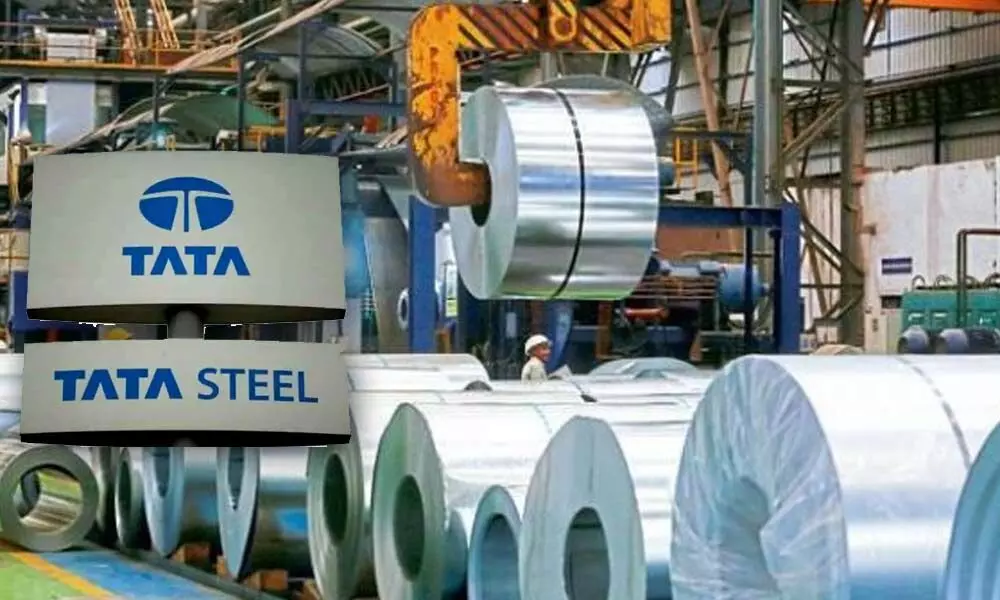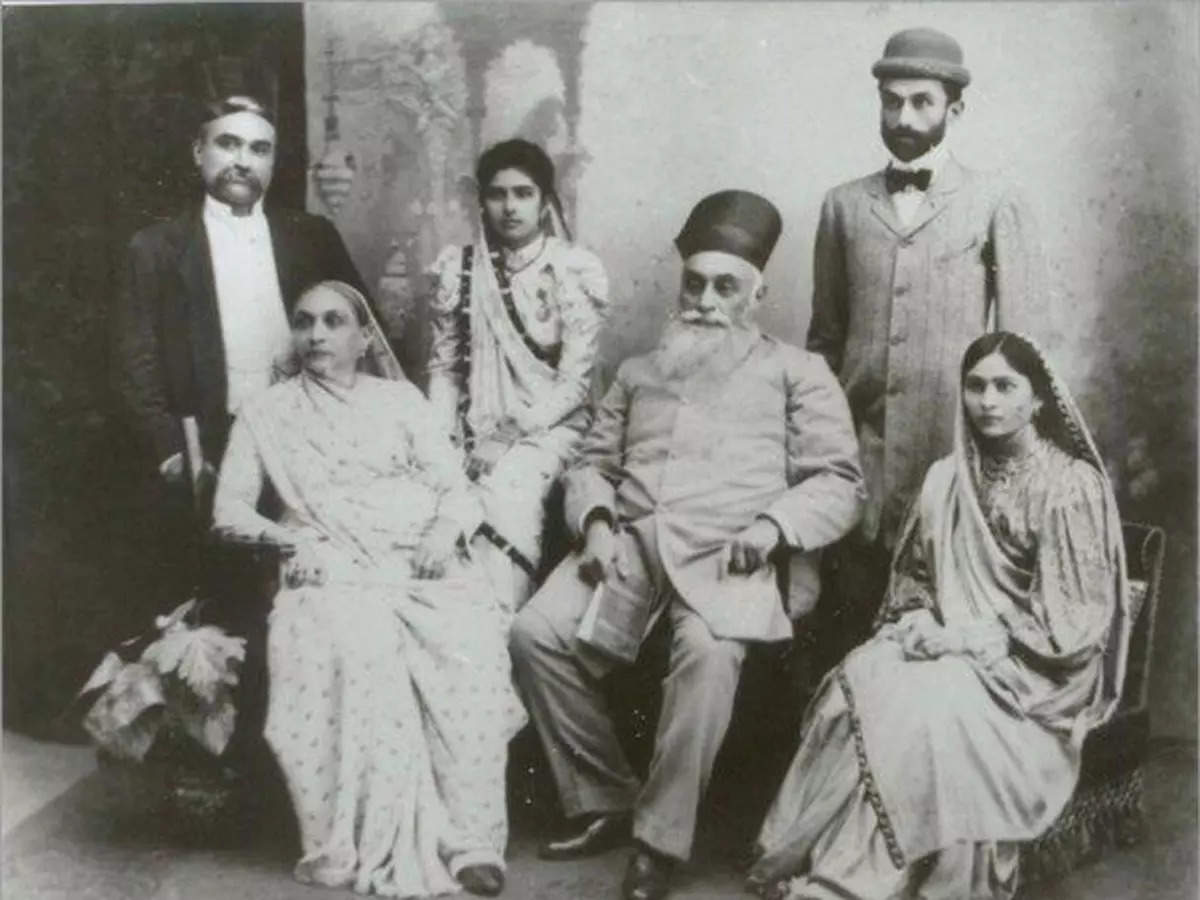“If there be any truer measure of a man than by what he does, it must be by
Robert South
what he gives.”
The birth of India on the eve of Independence from the tyrannical rule of the British was confronted with the challenges of a crippled economy, where the major population was dependent on agriculture for their sustenance. One of the major pillars that upheld the country in this hour of turmoil, and propelled it towards the destiny it deserved and aspired, by substantially contributing to its industrial growth and development was the Tata Group. The company personifies the Swadeshism, ethics and public service as envisioned by our nationalists with a legacy that has already transcended both time and history. Over the years, even before the birth of our great nation, the Tata group has consistently blessed us with the greatest of Indian entrepreneurs who have positively shaped the future of the nation. This essay is a tribute to them.
Take any aspect of your life, the presence of a Tata brand is inevitable. Be it cars and trucks – Tata Motors; airlines – Vistara and now Air India; Hotels – Taj Hotels; Clothes – Westside; Jewellery and watches – Tanishq and Titan; the salt that we use – Tata Salt and most importantly for all Indians, our beloved tea – Tata tea; along with this we have Tata steel, Tata Power along with the quintessential TCS – the IT company responsible for the software used in BSE and NSE which facilitates huge transactions on both platforms. The Tata group has more than 100 companies under its able wings. But I’m sure many of you already know this, and so I proceed towards illuminating you all with the legacy of the people who built the Tata group and hence built India, the 200-year legacy that acts as the invisible hand that compels writers like myself to pay homage to the achievements of the Tata Group, achievements that already shine
in gold.
The story begins in 1822, exactly 200 years ago with the birth of a boy to a Parsi priest family in a village in Gujarat. The boy is Sri Nusserwanji Tata. He was a restless soul from the beginning, filled with an urge to do something great. This urge to fulfil his destiny brought him to Bombay at the meagre age of 20 with his wife and son, making him the first person in his village to do so. He was attracted by the cotton trade there and soon, he was running a cotton export business. Nusserawanji never compromised with his son Sri Jamsetji Tata’s education and ensured that a major portion of the revenues was going in to facilitate the best possible quality of education for his son. The vision of International growth and expansion of the business had already taken root in Nusserawanji’s mind in the year 1859. Later when Jamsetji completed his education, at the age of 20 his father decided to send him to Hong Kong to make his vision a reality.
Jamsetji was highly ambitious like his father along with being highly observant and took this challenge of setting up a profitable firm in a foreign country head-on. This led him to immense success. Over the course of his life, Jamsetji worked on over 3 continents and helped establish the family business in Japan, USA, China and Europe. He then returned to Bombay with mercantile experience and was enriched by observation. In 1872, he focused on Cotton manufacturing and opened factories in Bombay, Coorla and Nagpur.

Jamsetji also then laid the foundation of India’s first steel plant in 1901, which later shaped itself to become the birth ground of the giant Tata Steel. Additionally, he also launched India’s first 5-star hotel – The Taj Mahal Hotel. The building stands strong to this very day much like the legacy of its creator. An interesting fact about this hotel is that it was India’s first fully electrified hotel and was also open to people of all races, colours and religions, extremely rare in an era smirched with harsh discrimination of all forms, further illuminating us with the noble and advanced values and morals of Jamsetji.
In 1904, when Jamsetji passed away, he left a legacy that remains unmatched even today. His legacy is much greater than all the industrial success he ignited, his legacy lies in the tremendous fort of principles and ethics that makes the Tata Group indomitable even today. A few examples for me to rest my case on are essential. In 1874, Jamsetji set up his first cotton mill in Nagpur, his first ever venture of getting into cotton production from cotton export. He encountered a problem, the labourers working in the Nagpur mill were very lazy. Many of them would remain absent and skip shifts on account of made-up reasons. The factory never saw 100% attendance.
Conventionally, what would a superior do in such a situation? S/he would resort to threatening with the prospect of termination, cut wages, employ methods of undue coercion, etc. What Jamsetji did in response is what made him special. He tried to find the reason behind their demotivation and decided to come up with a long-term humane solution to remedy the situation. He set up a General Provident fund for them, started an insurance scheme and created avenues of pension for them. He also started the tradition of family days, sports days and melas in order to foster solidarity among workers. All of this might seem very conventional and common these days, especially in international companies, but we must not forget the era in which this happened – the 1800s when workers all over the world were suffering from inhumane working conditions because of the toxic growth and culmination of capitalism and communism. He was the true originator of the ideas that are employed even today to motivate company workers.
We all know everyone’s life has its share of ups and downs, Jamsetji’s life was no different in this regard. The conclusion of the American Civil War had an adverse effect on Jamsetji’s Cotton business and the business even started making losses. Jamsetji was harrowed by investors for their returns during this period, but without losing his cool in this hour of crisis, he convinced his investors to keep the faith and promised that their dues will be paid to them. During this period Jamsetji had to work as a salaried employee in his own company to make sure that the investors’ due were paid on time. Such was his determination towards people he was responsible to and to his business. Eventually, the business got back on track and Jamsetji saved both his business and reputation. Jamsetji had many dreams for the nation which were revolutionarily beyond their time, 3 of which were – to set up a hydroelectric plant, to create a world-class educational institute in India (this later took the form of IISC, Bengaluru), and to create India’s first steel plant. Work on all 3 had started before his death, and it was his son Dorabji Tata who led them to a conclusion. By 1910, Tata’s Steel plant was operational and became the largest supplier of steel in India to the British during the first world war. Their steel was used to create tanks, and railway tracks that facilitated the whole country. Dorabji Tata was an ardent fan of sports, he was the President of the Indian Olympic Council. India owes its first participation in the Olympic Games at Antwerp in 1920 to Sir Dorabji Tata. He financed the Indian contingent that went to Paris in 1920.
An incident that is worth mentioning here is that Sri Dorabji Tata’s wife died of cancer. Stricken by loss, Dorabji Tata founded the Tata Memorial Hospital which treats 70% of cancer patients free of charge. This speaks volumes about the mindset of Sri Dorabji, when stricken by grief and loss the first resort was not to feel defeated by it but to make sure that no one had to go through the pain and troubles that he did. Such were the values inherited by Sri Dorabji by his father.

The Tata group was under Dorabji Tata till the year 1938, after which the company was put under the custody of the great J.R.D Tata, another passionate young man with great dreams. An interesting fact about him – he was India’s first licenced air pilot and was highly enthusiastic about air travel. This prompted him to lead the way for India’s first Airline – Tata Airlines, popularly known today as Air India. It was under J.R.D Tata’s leadership, that the Tata group grew even more in Independent India, and so did the country. In 1945, the Tata’s pioneered the locomotive industry thereby strengthening the Indian Railways. In 1968, Tata Consultancy Services took birth emboldened by the vision and understanding of the importance of technology in the years to come, further making sure that India remains paced in every avenue. JRD Tata also founded the Tata Institute of Fundamental Research along with Homi Jehangir Bhabha. He also helped in founding the Tata Institute of Social Sciences, the National Institute of Advanced Sciences and the National Centre for the Performing Arts among other notable acts.
1991-92 was an important era for the country, with the adoption of liberalisation in India came the highly loved and respected Ratan Tata at the helm of the Tata Group. In the 2000s, the Tata group under the stewardship of Ratan Tata made several high-profile acquisitions like Tetley, Corus, Jaguar Land Rover, Brunner Mond, General Chemical Industrial Products and Daewoo. The legacy of the Tata group is immense, and in my opinion, the Tata names that are mentioned here are one of the greatest entrepreneurs that the world has seen. It is most apt to say that every facet of India’s achievement has some contribution of the Tata group in one way or another. “The Tata group is blessed by the house of god”, as rightly said by Rakesh Jhunjhunwala, and in my personal opinion – “India is blessed by the house of Tata”.
I implore my readers, especially those who wish to own businesses one day and lead the country to greater greatness to emulate the Tata group in only one way – “When you give good, you get good”. This is why I believe that the Tata group are custodians of trust and the lamp of benevolence that lightens this country and brings us all hope. They are the most unique group of people because they have always had the courage and restraint to hold positions of power as positions of trust. I hope this essay inspires readers to pick up the many admirable qualities adorned by these fabulous people and further emboldens you to take that step that will eventually lead you to your destiny, very much like the step taken by Nusserwanji in that small village in Gujarat that eventually gave us all the Tata group – The Custodians of Trust in India.
-By Hargobind Singh (BE EXTC)

